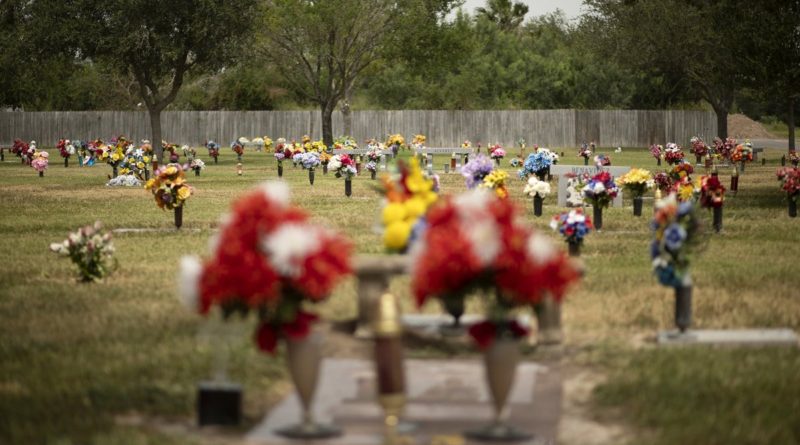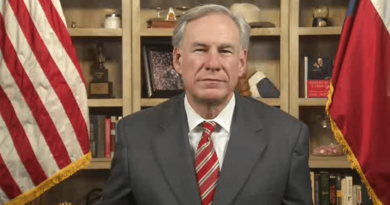Ross Ramsey: COVID-19’s almost incomprehensible toll in Texas
Editor’s note: If you’d like an email notice whenever we publish Ross Ramsey’s column, click here.
If you would like to listen to the column, just click on the play button below.
As of Thursday, COVID-19 had killed 14,590 Texans.
That’s the official number. Experts tell us the actual number is higher. And the number of COVID-19-related deaths — deaths that aren’t attributed to the virus but wouldn’t have occurred without it — is higher still.
Some of the televised awards shows — the Academy Awards, for example — feature an “in memoriam” segment that notes the deaths of people who have passed during the last year. They do it in sports leagues, in college alumni magazines and in civic clubs.
But states don’t do it. It’s more common to hear the names of businesses closed by the pandemic than the names of humans killed by COVID-19. If you were to read those 14,590 names at the rate of one name per second, it would take more than four hours to remember those dead Texans.
Even those one-second mentions would make for a long memorial service — and reciting that many names would still fall far short of making a loss of this size comprehensible. But saying their names would give the dead more notice, and more respect, than the steady increase in nameless numbers that mark the terrible advance of the coronavirus in Texas.
Gov. Greg Abbott is leading Texans to venture into a new round of reopenings, of schools, colleges, football games and now — based on the decreasing number of COVID-19 hospitalizations — allowing increasingly large crowds in restaurants, stores and office buildings. It’s a reasonable time to remember what has happened so far. Mark the moment. This could be where the tide turns in our favor, or another plateau that precedes a new surge in the pandemic.
There is still no vaccine and no assurance that one will be widely available within the next few months. It’s not time to take off that mask. The 2020 World Series will be played in Arlington this year, but with somewhat less than a full house of baseball-loving Texans.
Crowds are allowed in some places, but a lot of weddings and birthday celebrations have gone online.
Funerals are often conducted online, if they’re held at all. It’s common to end an obituary with an announcement of a memorial at an unspecified future date, a necessary accommodation to the virus that robs family and friends of closure and community, the comfort and remembrance that softens the end of a loved one’s life.
One can call this “no worse than a flu,” as if that means anything — flus are among the deadliest of diseases. The real point is that a new bug — a “novel coronavirus” — is killing people who would otherwise be alive and making many hundreds of thousands more very, very sick. Stop and think about the human cost of the coronavirus: the human lives lost so far and, with the disease still rampant, the lives yet to be lost in Texas and beyond its borders.
Some of us will be attending a large number of get-togethers to remember the friends and family we’ve lost and pay tribute to them, whenever it’s safe to get out and do that.
You don’t hear leaders talking much about the deaths. There’s often a passing reference at the start of news conferences or speeches where the pandemic is a subject. But you don’t see plans in Texas for a public remembrance of the people who aren’t with us any more because of this pandemic.
The official responses to the pandemic have been primarily about the disease itself, its effect on the economy, and the balance of government actions and individual freedoms. But this isn’t just an economic exercise, or a public health exercise, or a test of government impositions on personal rights.
We’ve lost a lot of Texans already and will surely lose more to the coronavirus. Doesn’t it seem like there should at least be a moment of silence?




